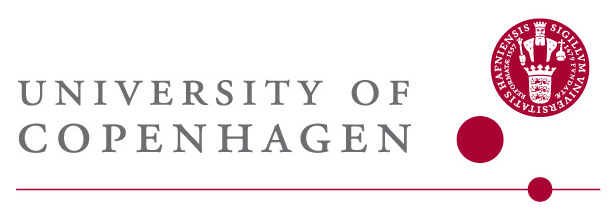 Interview with Dr. Mickey Gjerris, Associated Professor in Bioethics at Copenhagen University
Interview with Dr. Mickey Gjerris, Associated Professor in Bioethics at Copenhagen University
Can you tell us how did you get interested in the edible insects issues?
I have been working on issues within animal ethics for many years. When I saw the reports coming out on the possibility to turn insects into a mass provider of animal protein for food and feed, I became curious as to what extent the animal welfare issues and broader animal ethics questions concerning e.g. the killing of animals and the possible violation of their integrity had been addressed. We already have a range of domesticated animals within the food production system that raises a lot of academic and public debate. To what extent would these discussions be relevant to transfer to this new area?
When talking about massive animal breeding, including edible insects, we need to consider many ethical aspects. You’ve identified five critical areas, can you give us a specific overview of each one?
Enviromental impact:
Often intensive mass production of insects is promoted because of it´s higher degree of sustainability compared to more traditional production of animal protein, e.g. beef, pork, milk etc. But sustainability is an inherently vague concept that can be understood in a multitude of ways. And when you then compare different production systems and methods it becomes even more difficult to get clear answers as it is also necessary to discuss which alternatives should be included. Should we, for instance, only compare insect production to pork production or should we also look at an alternative where more plant-based diets are favored and what would that mean for different understandings of sustainability?
Human and animal health:
This is probably the most basic and easy to understand concern. Will replacing part of todays diets for humans and animals with insect protein have any negative impact on the health of these humans and animals. Are there any risks of zoonosis, allergic reactions etc – and how should such risks be dealt with?
Human preferences and social acceptability:
For many people around the globe eating insects is part of their usual diet. In Europe and North America, however, insects are not typically regarded as food, but more as pests. If insects are to replace enough of the animal protein consumed by people in these areas to make a difference with regard to climate change and environmental degradation, it will take a lot of convincing of large parts of the population to change their diets. Will this this be feasible – and to what extent should products containing insects be labelled to ensure that consumers can choose –or not choose– such products?
Animal welfare:
As far as we have been able to discern from the scarce literature in the field not much is known about the ability of insects to experience welfare. Obviously welfare concerns are only relevant, if the beings in question can actually have “welfare” in a way similar to animals that we today take into at least some consideration when we develop production systems. As there is more than 1 million species of insects it makes no sense to talk about “insect welfare” as that has to be evaluated species by species. Very little is known, so for each insect species that one wishes to “domesticate” research into the capability of the animal to experience welfare at all is necessary. If the conclusion is that the animal can have experiences of welfare, it is further necessary to find out how to farm them in a way that takes this into account.
Broader animal ethics issues:
Here are issues about the integrity of the animals, e.g. in connection with confinement, breeding, etc and questions about the killing of animals for non-vital purposes. Basically you can frame the questions as whether animals in some way have rights not to be used as mere resources for human purposes or whether utilizing animals is the right relationship between animals and humans. To a certain degree it becomes a based-on-ethical-arguments question of whether humans can use animals at all – or under which circumstances.
What about “ethical slaughtering”? What’s the best method for edible insects?
As mentioned before this depends on the capability of the animals to experience pain/suffering and the answer will be species-specific.
Are there other ethical issues to be considered?
There always is, but the above mentioned issues are the most important that we have identified so far.
To gain market success, do you think the edible insects industry needs to communicate to the consumers also about this issues?
Yes. Transparency is very important. People will then have different views on whether and how humans can utilize animals, what they prefer to eat, what sustainability means etc. But it is always best to be honest about the value conflicts underlying agircultural practices (or any practice for that matter).
Concerning our food sources and our food production methods, are we enough aware of human-referred ethical issues?
Whether issues related directly to the animals, especially questions regarding their integrity, right to life etc. are addressed adequately in ethical debates concerning insects, is obviously related to your personal stance on these matters. Personally I find that we are rightly concerned about risks to humans both on a physical and social scale when we discuss insects, but unfortunately carry with us the negligence towards the animals themselves that can also be found in discussions on e.g. conventional production animals.
Basically I find that in discussions on animals, the western culture is concerned about human interest, take up animal welfare issues,althoughfrom my point of view the level of welfare granted to animals is much to low and people largely ignore the deeper and broader animal ethics questions. But as I said: this is a personal opinion based on my values, just as those who do not find these questions important rely on their values to formulate their opinions.





